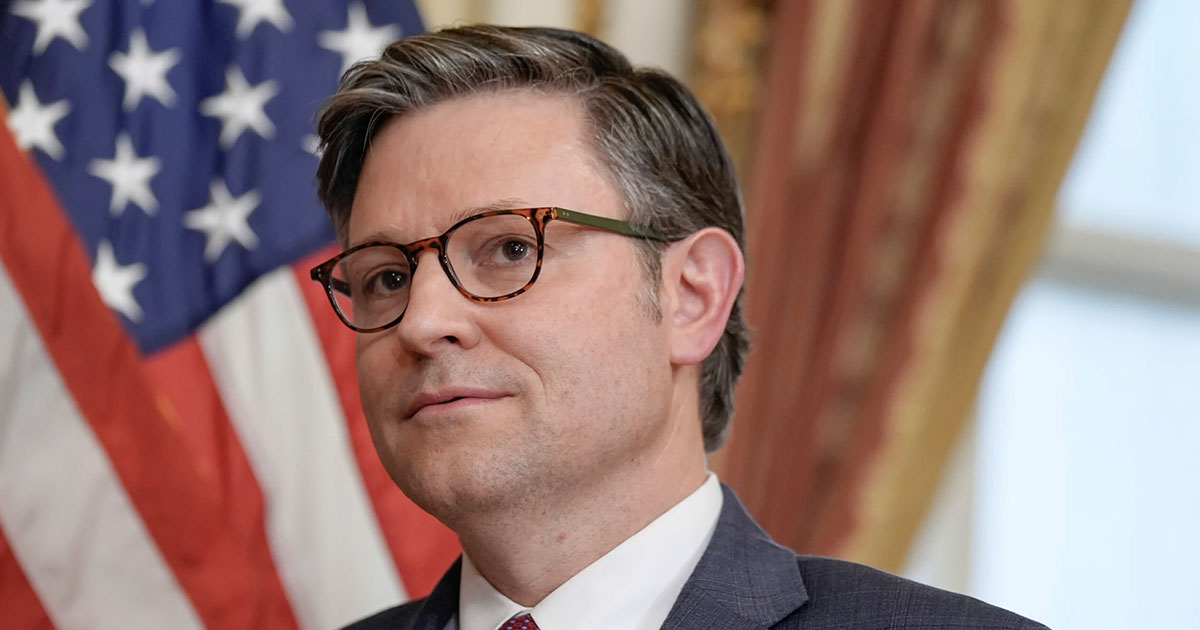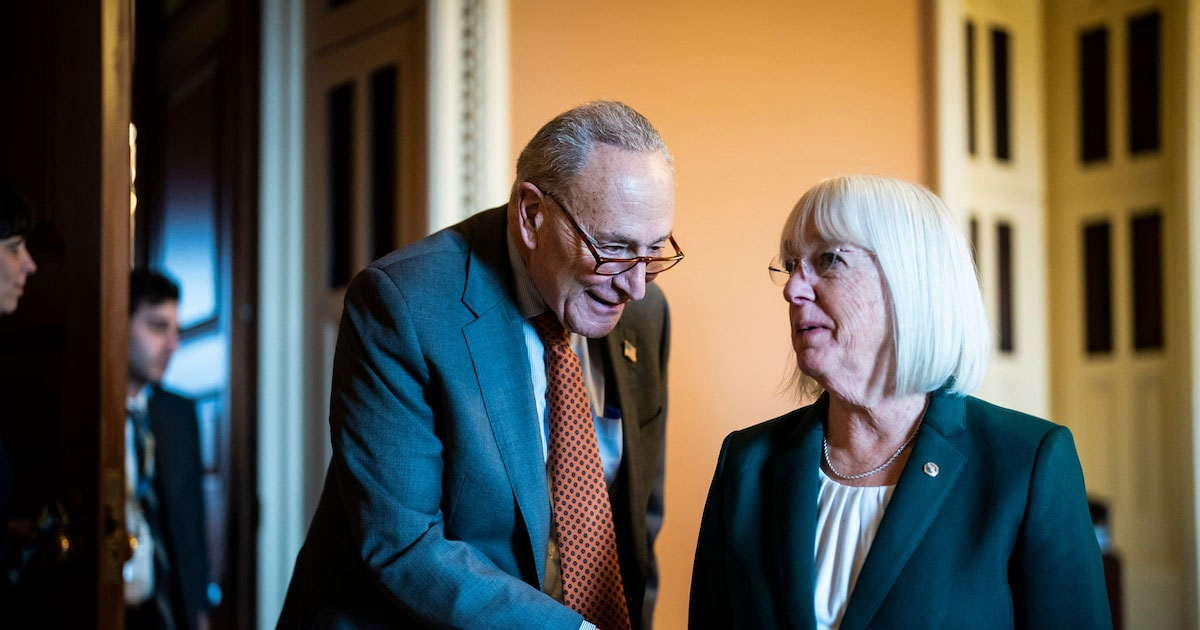The surveys conducted by J. Ann Selzer have historically captured the hopes and fears of those aspiring to lead the nation, reflecting with remarkable precision the opinions of Iowa voters, who play a significant role in the selection of American presidents.
Just weeks into her retirement, Ms. Selzer has emerged as a symbol of growing concerns regarding the potential for retribution in the event of a second Trump term.
Ms. Selzer, the longtime director of the Iowa Poll, is facing criticism not for her past successes but for a significant miscalculation. Findings released on November 2 indicated that Vice President Kamala Harris was leading Donald J. Trump in the traditionally Republican stronghold of Iowa for the 2024 presidential election, suggesting the possibility of unexpected support from women across the country.
This week, a lawsuit has been filed in Polk County, Iowa, by Mr. Trump’s legal team against Ms. Selzer, her polling firm, and her employers, The Des Moines Register and its parent company, Gannett. Legal experts in the media industry view this action as a clear attempt to intimidate both journalists and pollsters in the lead-up to his inauguration.
It remains uncertain if Ms. Selzer will shoulder the financial burden of her defense independently. A representative for Gannett, which has labeled the lawsuit as meritless, refrained from commenting on whether the company or the newspaper would bear those expenses. Ms. Selzer chose not to provide a statement, stating, “At this moment, my priority is securing appropriate legal representation.”
According to David Kochel, a veteran Iowa Republican consultant, Ms. Selzer has maintained a strong bipartisan reputation in Iowa, stemming from her successful predictions of victories for both Republicans and Democrats over the years.
“She has earned significant respect from individuals across both sides for an extensive period,” Mr. Kochel stated. “The Iowa Poll has maintained its status as the gold standard for an extended period.”
Prior to 2024, she experienced other inaccuracies: In her last Iowa poll of 2004, John Kerry, the Democratic candidate, was shown to be ahead of then-President George W. Bush by five percentage points. However, just days later, Mr. Bush narrowly secured victory in the state by a mere 0.07 points. However, that period was characterized by a different, less polarized atmosphere.
Ms. Selzer has achieved a significant number of victories, greatly surpassing her losses, even during times when she was considered an outlier. In 2014, while other pollsters forecasted a win for Democrat Bruce Braley in the contest to replace retiring Democratic figure Senator Tom Harkin, Ms. Selzer anticipated a straightforward victory for Republican Joni Ernst. She was correct.
Selected Highlights
My neighbor continues to pray for me without pause. What actions should be taken?
The Delight of Christmas Ornaments from a Jewish Perspective
Arlene Croce, renowned dance critic known for her sharp wit, has passed away at the age of 90.
This November, a poll revealed that Ms. Harris was leading Mr. Trump 47 percent to 44 percent, igniting a wave of speculation about the vice president’s potential for a decisive victory, fueled by the support of dissatisfied women that other surveys may have overlooked.
Mr. Kochel stated, “In 2024, there was significant poll-herding occurring; pollsters tend to avoid being outliers.” She exhibited reduced apprehension regarding that situation, having made several calls where she stood out from the crowd, ultimately succeeding in her wager. It ultimately caught up with her.
Ms. Selzer, 68, exemplified the essence of the Great Plains. She was born in Rochester, Minnesota, and raised in Topeka, Kansas, ultimately earning a doctorate in communications theory from the University of Iowa. Following her graduation, she joined The Des Moines Register, where she managed nearly all polls conducted by the newspaper from 1987 until November 2024, establishing her reputation as a keen observer of her state’s dynamics. She appeared to possess a unique ability to connect with Iowans, including the caucusgoers known for their elusive nature.
In a farewell column published last month, Ms. Selzer took the opportunity to defend her reputation and integrity, while also acknowledging her final misstep.
“Polling is a science of estimation, and science has a way of periodically humbling the scientist,” she stated. “I find myself in a position of humility.”
Mr. Trump finds her humility insufficient. A lawsuit has been filed referencing the Iowa Consumer Fraud Act, alleging that the poll misled voters to “create a false narrative of inevitability for Harris,” which is described as an act of “brazen election interference.”
Devereux Chatillon, a media lawyer based in Mount Kisco, N.Y., dismissed the legal claim with skepticism. In order to invoke a business fraud statute, the legal team representing Mr. Trump must demonstrate that the entity involved — The Des Moines Register — engaged in fraudulent promotion of a product, specifically the vice president of the United States. The president-elect’s suggestion that voters were misled regarding that product appears to lack support in the election results, both nationally and particularly in Iowa, she stated.
George Freeman, the executive director of the Media Law Resource Center, expressed his confusion on the matter.
“Fraud cannot be established unless there is evidence of intentional deception,” he stated. “Fraud goes beyond mere error.”
Media lawyers and free-press advocates view the lawsuit as a strategic move to navigate the challenging defamation laws that pose significant hurdles for a high-profile figure like Mr. Trump. While invoking consumer fraud may not prove to be a successful legal tactic, it does present a significant advantage. State consumer fraud statutes empower state attorneys general to conduct investigations, initiate cases, and even intervene in ongoing legal proceedings. In 2023, Texas Attorney General Ken Paxton, known for his strong support of former President Trump, initiated an ongoing fraud investigation into the liberal organization Media Matters.
Iowa’s conservative attorney general, Brenna Bird, has demonstrated a willingness to step in on legal matters in support of Mr. Trump.
Regardless of the outcome, the legal proceedings serve as a clear cautionary message to any media organization that challenges the forthcoming president: “This complaint marks another instance in President-elect Trump’s pattern of employing lawsuits as a means to retaliate against unfavorable reporting,” stated Bruce D. Brown, the executive director of the Reporters Committee for Freedom of the Press.
Legal battles of this nature tend to be lengthy and expensive. Experts indicate that even if the lawsuit appears unlikely to succeed, the financial toll of defending against it can be significant.
Ms. Selzer faces a poignant moment as she prepares to retire, overshadowed by a prevailing sense of tragedy. Accusations are rampant on social media from Trump supporters, who are likening Ms. Selzer to a cartoon “super villain.” Additionally, there are conspiracy theories circulating that allege Democratic operatives collaborated with the pollster to manipulate her final poll result.
During a recent interview with journalists in Iowa, she revealed that the West Des Moines police had alerted her to threats against her safety.
“When the police department comes to your door and informs you that your name has surfaced, I regard that with utmost seriousness,” she stated. “I am implementing all necessary precautions.”
Her primary concern revolves around her standing. “It goes beyond mere annoyance,” she stated. “This is clearly an attack on my reputation.”
A 1996 analysis of her work by The New York Times highlights her accuracy in polling leading up to the crucial Iowa caucuses and the general elections. She predicted Mr. Trump’s victory over Hillary Clinton in 2016. In the 2008 Iowa caucuses, she garnered the support of Barack Obama, while in 2012, she highlighted former Senator Rick Santorum’s late surge that propelled him ahead of Mitt Romney for the victory.
In six of the last eight Iowa polls, Ms. Selzer’s predictions fell within the margin of error of the actual results.
However, she has faced criticism from individuals in both political parties for an extended period. In her last eight final Iowa presidential polls, a slight but consistent lean toward Democrats has been revealed. This trend has been seized upon by Republicans, who have used it to criticize both her and her employer, The Register, whose liberal editorial board appears to be increasingly out of sync with the conservative sentiments of the state.
Jeff Kaufmann, chairman of the Iowa Republican Party, expressed his support for Mr. Trump’s lawsuit on social media on Tuesday, stating, “There needs to be accountability.” On Wednesday, he stated in a text, “I support President Trump 100 percent.”
Democrats have encountered various challenges with Ms. Selzer. A significant error in the final poll preceding the Iowa caucuses in 2020 prompted a furious reaction from Pete Buttigieg’s senior adviser, Lis Smith, leading to the decision to shelve the final Iowa Poll just days before voters were set to cast their ballots. In an unexpected turn of events, a pollster working for Ms. Selzer reached out to an organizer for Buttigieg. When the moment arrived to inquire about her preferred Democratic candidate, Mr. Buttigieg was notably absent from the list of options presented.
In her book “Any Given Tuesday,” Ms. Smith appears to have unintentionally offered material that could bolster Mr. Trump’s legal case, indicating that the poll results might influence the election’s outcome.
“This poll stands out as the most significant and influential in the realm of presidential primary politics.” She stated that it would establish the narrative for the caucuses, overshadowing media coverage and influencing caucus decisions. “I was overwhelmed with emotion.”
Few Republican pollsters have publicly defended Ms. Selzer, largely due to concerns about the repercussions of crossing Mr. Trump. Six notable Republican pollsters chose not to provide comments for this article. “I understand you need to cover the story, but I’ll have to decline,” stated one individual in a common reply to an email request.
In her defense of integrity as a pollster, Ms. Selzer has yet to confront the potential impact her polls may have had on the results of elections. She has expressed regret over the circumstances surrounding her retirement, stating that it was planned well in advance of Election Day 2024.





